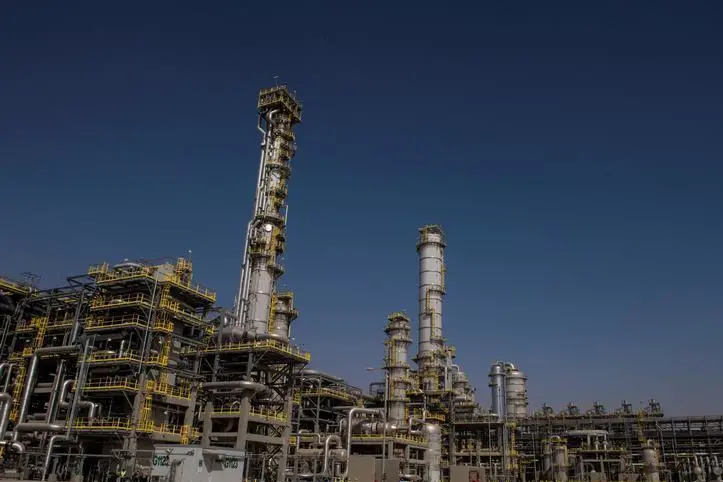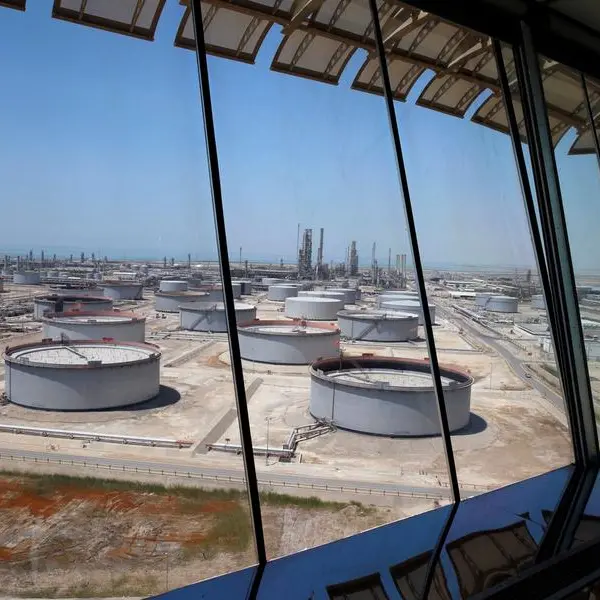PHOTO
Gulf Arab oil producers could suffer from bigger budget deficits through 2025 with growing fears that oil prices may continue to slide amidst signs of a global trade war.
Although their hydrocarbon exports are not affected by a 10 percent import tariff imposed by the US President Donald Trump on their products, the six Gulf Cooperation Council (GCC) countries could suffer from a plunge in their oil revenues, which provides more than two thirds of their national income.
Analysts said the six nations, which control nearly a third of the world’s proven oil deposits, would be worried about the indirect impact of a global trade war on their income as it would drive down demand and depress prices.
They said that a sustained price downturn would squeeze GCC revenues and widen fiscal deficits as some of them have assumed high oil prices in their budgets.
Saudi Arabia, for instance, needs oil near $96 per barrel to balance its 2025 budget, well above current prices. Kuwait also normally bases its budget on a $70 price.
“I believe there could be an indirect impact of the US tariffs on the GCC fiscal position should oil prices continue to slide…Saudi Arabia and other producers are already struggling to prevent prices from tumbling by reducing their production,” said Ihsan Buhlaiga, a well-known Saudi economist.
“The situation now is complicated as those producers cannot keep cutting output…in the case of the GCC countries, they could have a higher deficit because they cannot trim current spending further…any cuts could be in capital expenditure,” he told Zawya Projects.
In 2024, Saudi Arabia recorded an actual budget deficit of around 116 billion Saudi riyals ($30.9 billion) and it forecast a shortfall of SAR101 billion ($26.9 billion) for 2025.
The Kingdom, the world’s dominant oil exporter, covered last year’s budget through borrowing and is expected to borrow again this year, boosting its total public debt to nearly SAR1.343 trillion ($358 billion) at the end of the year, according to the Riyadh-based Jadwa Investment, which cited Saudi Finance Ministry data.
Kuwait is also expected to borrow this year to finance a budget deficit of around 6.3 billion Kuwaiti dinars ($20.79 billion) after it approved a new debt law last month.
Bahrain’s budget also remained in deficit while Qatar, Oman and the UAE recorded surplus as income was bolstered by large LNG exports. But analysts believe the balance may be upset if oil prices fall sharply.
“Trump’s tariffs will have profound implications on the global oil trade and, consequently, the MENA’s oil-dependent economies,” the Washington-based Atlantic Council said in a study last week.
“Tariffs generally dampen market demand by raising consumption cost and introducing uncertainty about the future. US tariffs are likely to weaken the world’s consumption, which in turn would reduce oil demand. As a result, oil prices would decline, dealing a blow to the region’s oil producers.”
The GCC (Saudi Arabia, Qatar, Bahrain. Kuwait, Oman and the UAE) is the third largest trading partner of the US after China and Japan.
In 2023, their imports from the US stood at around $49.8 billion and exports at nearly $30.3 billion, with a $19 billion surplus in favour of the US.
The UAE was the largest Arab trade partner of the US, accounting for nearly 39 percent of the total GCC-US exchange in 2023. Saudi Arabia was second as it amounted for nearly 37.9 percent of the total.
(Reporting by Nadim Kawach; Editing by Anoop Menon)
Subscribe to our Projects' PULSE newsletter that brings you trustworthy news, updates and insights on project activities, developments, and partnerships across sectors in the Middle East and Africa.





















